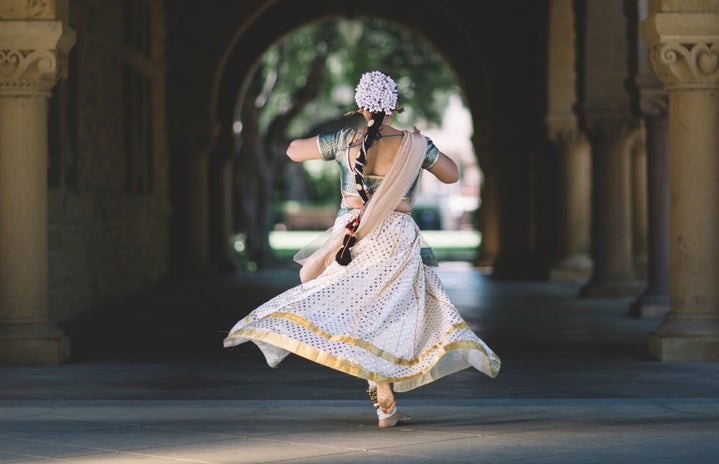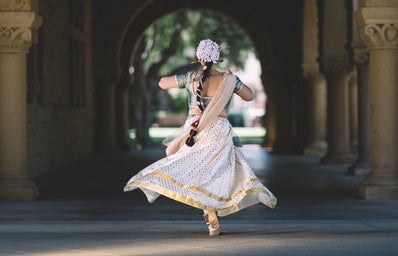The life that I lead is a type of lifestyle that my mother and my ancestors have never experienced. I am indeed my ancestors’ wildest dreams. They’re probably looking down at me smiling widely as they watch me chase my dreams and ‘tsk in disappointment when I make poor choices. When I think of my South Asian identity, I think of one of Rupi Kaur’s poems in The Sun and Her Flowers:
“My mother sacrificed her dreams so I could dream.”
I think about this a lot. It’s simply written but holds so much depth. I reflect on how I and so many other young Desi women growing up in the West have similar stories of our upbringing, especially when we’re the first people in our family to have a hyphened identity. But we are also accomplishing and reaching new heights that women before us didn’t think were possible. We are paving a path for our future generations to be fruitful in their endeavors. As we do this, we are breaking barriers and the glass ceiling that women in our community have never done before. Getting a college degree, traveling alone to a new country, living on our own, and becoming women who live life by our own terms. Women before us didn’t have freedom like we do. Some didn’t have the opportunity to go to school and be educated. Both of my grandmothers didn’t attend school, which resulted in them not knowing how to read and write in Bengali. When my maternal grandmother had my mom and her siblings, they took it upon themselves to teach their mother to be literate. I find beauty in how my mother and her siblings helped my Nanizi flourish and give her a tool that she didn’t have the privilege of receiving when she was a child.
When my mother was growing up in Bangladesh, she was very much fierce and bold. She was independent and studious. She was at the top of her class in high school. She attended college but didn’t complete her studies because she moved to America. She had hopes of becoming either a nurse or an educator in Bangladesh. That’s why growing up my Amma made sure I was getting the best grades and staying out of trouble.
During this past winter break, I put my walls down and opened up to her and asked how did she do it with tears streaming down my face as I was confiding in her my struggles of being a first-generation college student. How did she come to a foreign country that she knew nothing about and leave her loved ones behind? How did she raise me when she too was young and was a mother for the first time? She says she did it all through God’s grace and she’s amazed of the woman I’m becoming. She never thought in her wildest dream that would have a daughter like me, making her proud and doing things she never thought were possible.
Today’s South Asian women are not like our mothers and ancestors. We’re not relying on men to take care and provide for us. We’re not letting our value be based on how well we cook and take care of the household. Our lives don’t end on just being a wife and mother. We’re so much more than that. We dress differently. We listen to music that they have never heard of before. We speak in a voice that holds a Western tone but also has the ability to switch to our mother tongue. Above all, we are empowered.
Want to see more HCFSU? Be sure to like us on Facebook and follow us on Instagram, Twitter and Pinterest!



